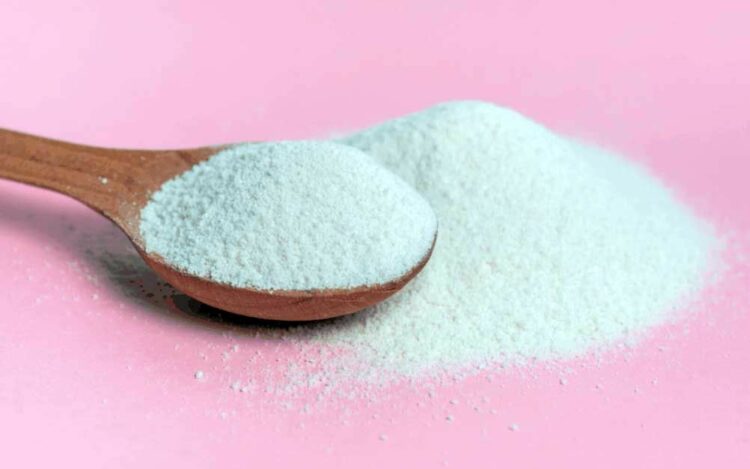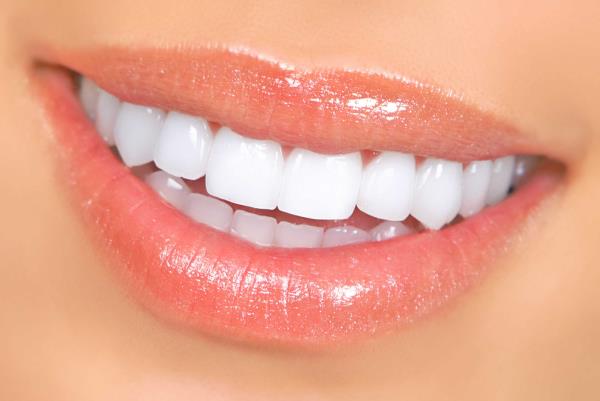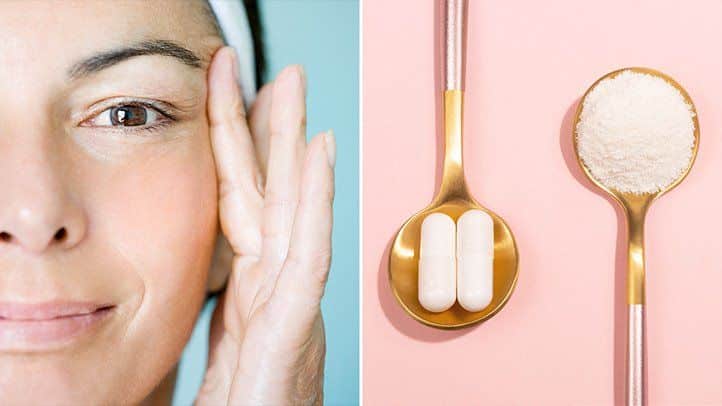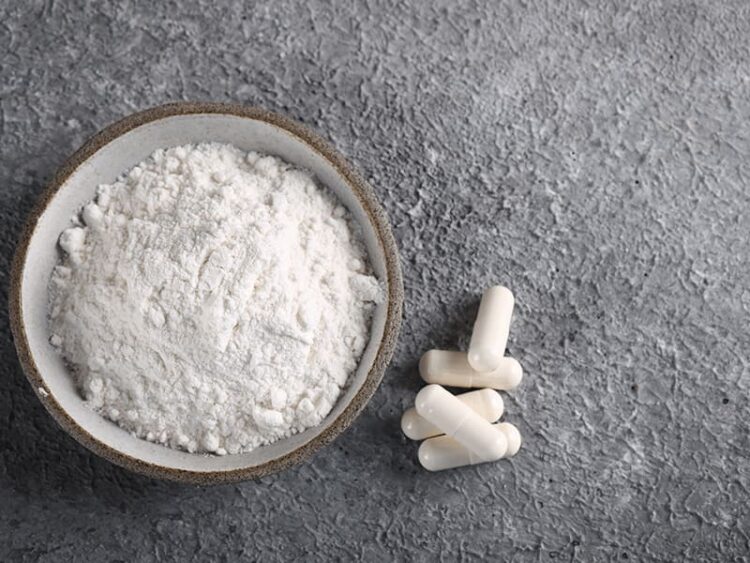Collagen supplements have been the most talked about nutritional supplement lately. In this article, we will try to clear the question of what collagen is, from which foods we can get collagen, and about collagen.
What is Collagen?

It is a protein that enables organs and cells to adhere to each other, as well as maintaining the integrity of our tissues and providing tissue flexibility. The World Health Organization says that 10 grams of collagen per day should be taken every day for at least 3 months.
Today, collagen is known especially for protecting skin integrity, fighting joint rheumatism and melting of joint cartilage. Regardless of male or female, nearly eighty percent of the body is made up of collagen. Approximately 80% of our muscle tendons and 75% of the skin are collagen.
When we start to consume, the body first sends this consumed collagen to bone, cartilage, liver connective tissue and other areas that need it. After the needs of other parts of the body are completed, it sends the consumed collagen to the skin. For this reason, we can see the clearest ethics in consumption in the second and third months. With the advancing age, the production in the body also experiences a great decrease.
Collagen Types

There is no single type of collagen in our body. There are 28 different types. 80% to 90% of the collagen in our body is “Type 1, 2 or 3” collagen. There are quite significant differences in their species at the molecular level.
- Type I: Collagen in skin, bones, teeth, tendons and ligaments.
- Type II: Collagen found in bones, cartilage tissue.
- Type III: Collagen found in the gastrointestinal tract, skin and vascular system.
About 90% of our skin is “Type I” collagen. Therefore, if you are going to use it for your skin, this collagen should be Type I collagen. It may also contain Type III collagen, but it is not necessary.
If you want to use it for your joint health, you should use Type II collagen. There is no harm in using Type I and Type II collagen together.
In general, Type I collagen is obtained from cattle or fish, while Type II collagen contains chicken.
Benefits of Collagen

- Your skin looks firmer
- If you have a hair loss problem, it will reduce it.
- It not only tightens the skin on your face but also helps to renew it.
- With the fulfillment of the need, your sleep pattern will improve and your sleep quality will increase.
- It strengthens the muscles and bones in your body.
- Strengthens your immunity
- It is very beneficial for your heart health.
- It has antioxidant and detoxification properties.
- Extends life by increasing your quality of life
- Benefits your hormonal system
How Do We Understand Its Deficiency?

So how can we tell if a person has a collagen deficiency? To list the problems seen as a result of its deficiency:
- Joint pain is common
- Hair and nails break
- Bruises occur suddenly on the body
- Wrinkles begin on the skin, causing skin dryness, sagging, discoloration and pale skin.
- The area around the eyes looks hollow.
- Intense fatigue is felt
- Occasional bleeding may occur in the gums.
- Causes physiological problems
- Cellulite formation is observed
- As we age, the destruction of collagen in our body increases, and its formation gradually decreases. Collagen loss in women begins in the mid-twenties, and approximately 1% is lost each year. In a woman who has entered the menopause period, this loss is known as 30% as of the first 5 years.
- After losing collagen, the layers of the skin layer of the skin: from the epidermis, dermis and hypodermis layers, the amount of hyaluronic acid in the dermis layer gradually decreases. With the decrease, the skin dries out and the skin’s defense against sun rays becomes ineffective.
Factors Reducing Collagen Production

Our aging is not the only event that causes its production to decline. Some reasons exposed to today’s conditions can also reduce the production of these collagens, which are very important in the body.
Stress caused by both physical and mental fatigue increases cortisol in the body, which can deplete its stores.
- High blood sugar caused by consuming processed sugars
- Excessive use of cosmetic products
- Having addictions such as alcohol and cigarettes
- Inadequate intake of vitamin C and minerals required daily
- Not protecting the skin against external factors
- having sleep disorders
Foods Effective in Collagen Production

Supplements used to correct the deficiency may not always give positive results. Before using these supplements, individuals should learn about the safety of the product and use expert-approved products. Apart from these supplements, individuals who want to increase collagen production should pay attention to their food consumption and consume some foods that support their production. Some foods that support its production;
- bone broth
- The fish
- leafy greens
- roaming chicken meat
- Egg
- Cashew
- soy milk
- Peanut types
- Cheese
- Potato
- Almond
- Tomatoes
- Pumpkin seeds
- Kiwi
- Citrus
- Avocado
- Garlic
In the absence of vitamin C, its production in the body decreases. For this reason, we should not regularly meet the vitamin C that the body needs on a daily basis. Some fruits and vegetables rich in vitamin C include:
- Lemon
- Orange
- Mango
- Grapefruit
- Kiwi
- Pineapple
- Aubergine
- Cabbage
- Spinach
Who Should Not Use Collagen?

The data obtained within the studies do not recommend the use of cancer patients. Just like in cancer patients, it is not recommended to use collagen in pregnant women, since the results of its use are not well known in these individuals.
Those with conditions such as chronic kidney or liver failure should consult their doctor before using it.
How Long Should I Use?

Duration of use is a situation that may vary from individual to individual, depending on the age of the individuals and the level of their deformations. Clinical studies show that we can see its effects in our body at least 3 months after we start using 10 grams of collagen every day regularly.
If you want it to be more effective while using it, you should definitely use vitamins that increase the absorption of collagen together. Vitamin C increases and supports its absorption in the body. If the supplement you are using contains vitamin C, you do not need to take an extra vitamin C. But if the product contains only collagen, you need to consume extra vitamin C externally. If you want to find out what is missing from the vitamins and minerals in your body, you can easily find out which minerals and vitamins you lack with a blood test from the nearest hospital.
About Supplements
It should always be our first priority to meet the deficiency in our body naturally. Many foods have collagen-supporting and constructive properties. If the amount of collagen taken naturally is not enough, you can turn to supplements.
You should pay attention to herbal or vegan products sold in the market. These products usually do not contain collagen. It has not been scientifically proven that these products contain collagen.
It can be said that it is very difficult for the collagen creams that are sold to be of any use when applied to the skin, since the collagen is produced deeper than the epidermis.
When buying supplements, be sure to buy from pharmacies or expert-approved brands that we trust. A large number of fake collagen supplements are sold on the market.













